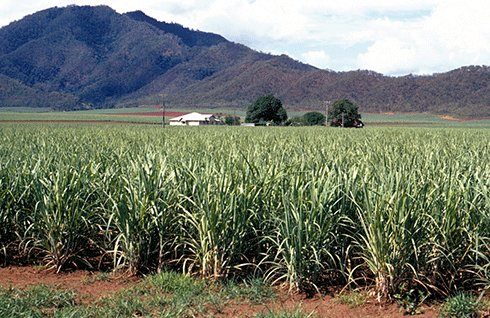
|
Published: 13 January 2014
Bacteria to aid sustainable sugar cane production
Scientists have discovered a bacterium that could reduce the use of fertiliser in sugar cane production and improve yield.
Sugar is an important commodity around the world and sugar cane accounts for about 80 per cent of production.
The price of sugar has increased at a rate considerably above inflation over the last 30 years. This is not least due to the rising cost of fertilisers, which is partly driven by increased global demand, and linked to the degradation of soil quality over decades of agricultural use.
The research, just published in the journal, Microbial Biotechnology, describes how scientists searched the roots of sugar cane and found a new bacterium, Burkholderia australis, that promotes plant growth through a process called nitrogen fixation.
Bacteria are widely used in sugar cane production, as well as with other crops, where they help break down organic matter in the soil making vital nutrients available to the growing plants, or turn nitrogen from the air into nitrogen compounds that are essential for growth (so-called biological nitrogen fixation).
Due to the complexity of biological processes in and around the plant root, the results of bacterial activity are variable. This variability means the success of bacterial fertilisers will depend on developing tailor-made versions for different crop cultivars and environments.
Lead researcher, Dr Chanyarat Paungfoo-Lonhienne from The University of Queensland, said it was time for a new approach.
‘[We] went looking for bacteria that were present in large numbers around the roots of thriving sugar cane plants,’ he said.
‘While two of the most abundant bacteria did not have noticeable effects on plant growth, Burkholderia australis was doing quite well in competition with other soil bacteria in the environment, and turned out to be particularly good for the plants.’
The team tested the bacteria, checking the microorganisms were able to live among the roots of growing sugar cane seedlings, and sequencing their genome to confirm they had the genetic ability to turn nitrogen into plant food.
Paungfoo-Lonhienne and colleagues are also looking for bacteria that break down waste produces from sugar cane processing or livestock manures, to provide better natural fertiliser for next-generation crop production.
Source: University of Queensland




